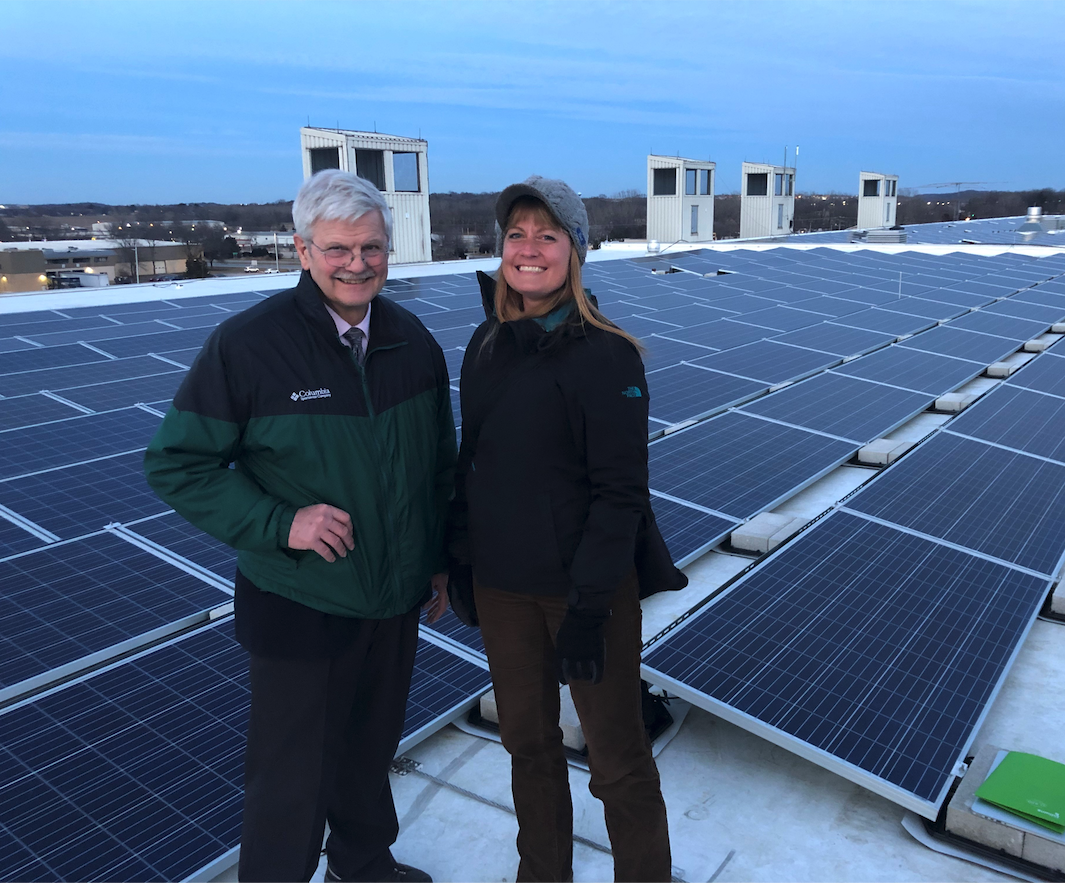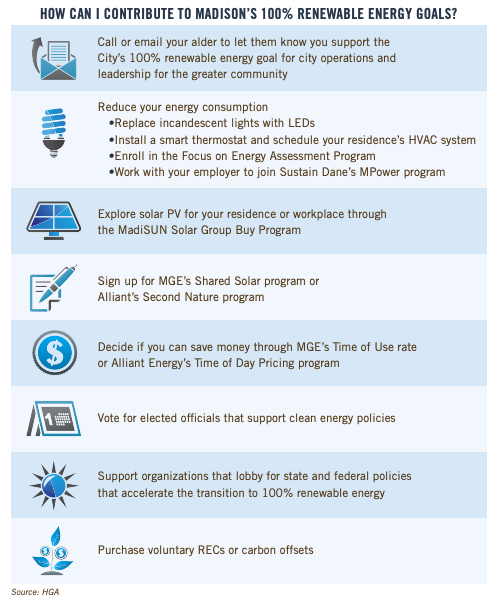Stacie Reece, a 2013 University of Wisconsin Bachelor of Science in Sustainable Management graduate, has paved her way into the role of sustainability program coordinator for the City of Madison. This job change marks a historical milestone, as it establishes the first sustainability coordinator role for the city.
When we last checked in with Stacie, she was serving as the director of sustainable initiative at Sustain Dane, a Madison nonprofit. Today, Stacie is excited and focused on changing the future of renewable energy in Madison. Although her path into the sustainability world was not always clear—coming from a decade of bookkeeping and accounting for banks and law firms—Stacie followed her passion and a drive to forge change in her community, which led her to the UW Bachelor of Science in Sustainable Management online degree program and beyond.
The following Q&A provides a glimpse into Stacie’s role and explores what she hopes to bring to Madison as its first sustainability program coordinator.
Can you take us on your journey to your new position?
While I was working at Sustain Dane, I applied to sit on the Sustainable Madison Committee. That was my first introduction to how sustainability activity works at the local government municipal level. In 2017 while I was on that committee as a resident, one of the alder committee members pushed for a sustainability program coordinator position to be in the 2018 budget, and it was passed. Then, as a committee, we discussed what we thought this position could look like, and that’s what first interested me in this position.
In spring 2018, I took on the part-time role of sustainability coordinator for the City of Middleton, while still working at Sustain Dane. This helped me gain more experience and familiarity with projects a sustainability coordinator could lead. Later in 2018, the City of Madison sustainability coordinator position was posted, and I applied and was offered the job. By being part of the Sustainable Madison Committee, I was really familiar with the sustainability work that was going on in Madison and was excited to hit the ground running.
What are your responsibilities as the sustainability coordinator?

As a previous member of the Sustainable Madison Committee, we had been heavily focused on the energy carbon sector sphere. In March of 2017, the committee drafted a resolution that was then adopted by the City of Madison to achieve 100 percent renewable energy and net-zero carbon across city operations and communities.
Since the March 2017 adoption of those goals, the Sustainable Madison Committee has worked with a consulting firm to put together the 100% Renewable Madison Report, which serves as a roadmap of how we will achieve such renewable energy initiatives. The report was finalized at the the beginning of the year and is going through other committees, commissions, boards, and eventually the Madison Common Council. I’ve helped draft this report, and now I am switching hats in my new role to implement what we have planned out. The City of Madison is also looking at initiatives beyond the 100% Renewable
Madison Report, such as purchasing, urban canopy, composting, resiliency, and more.
What are some sustainability initiatives that are proposed in the 100% Renewable Madison Report?
The basic concept is centered on clamping down and finding more energy efficient opportunities within the city. Then, it pivots to what we can use as a renewable fuel source. We are looking at the use of solar, wind, and electricity fuel alternatives for transportation. We also have an exciting opportunity with compressed natural gas from landfills.
Here at the Dane County Landfill, they’re taking out the methane that is produced from our garbage, cleaning and compressing it, and then putting it into a pipeline. In our own backyard we have a fuel source that is—in all senses of the word—renewable.
The horizon for sustainable technology is looking really bright. Solar and wind technology has dropped precipitously in price, and battery technology storage is predicted to follow a similar path line. As we wait to see where these technologies will take us, we will continue to look at using renewable energy credits or carbon offsets to help us get to our goals.
Get Program Guide
Learn more about our 100% online degree and certificate programs.
How did your experience in the UW Bachelor of Science in Sustainable Management online degree program prepare you for this role?

The structure of the online degree program challenged me to seek out knowledge, which I think lends itself well to the real-world experiences where you find success by being a self-learner.
My capstone project in the UW Sustainable Management online degree program required me to go out into the community where I interviewed brewery owners and workers about a renewable energy project at their businesses. Because of my capstone, I ventured out and talked with local leaders and business owners and truly started to understand the landscape while also making some invaluable connections in the business community.
The capstone course also recommended that students complete an internship, and that’s how I got connected with Sustain Dane—being the intern in its business program. The requirements of the capstone and the structure of the projects really opened the door for me to understand real-world applications of sustainability. So, I highly recommend that students find an internship to coincide with their final semester, because you really never know how far it will take you.
If you could go back in time and give yourself advice before applying for the UW Sustainable Management program, what would you say?
When I decided to go back to school, it was a leap of faith. It is a little bit terrifying to just say, “Okay, I’m going back to school for this thing. It’s new. So I don’t know what the outcome might be.”
But really, when I decided on it, it was kind of just “go bold, or go home.” Sustainable management is important work. And as we’ve seen more and more reports coming out—the National Climate Assessment and IPCC—it’s clear that this work will continue to grow. And so I would tell myself to just go for it and trust in the fact that you’re making a good decision to focus on strengthening your community through sustainability.
Explore the possibilities of a career in Sustainable Management. Contact one of our enrollment advisers at 608-262-2011 or via email at learn@uwex.wisconsin.edu.
UW Sustainable Management is a collaboration of UW System campuses. Stacie earned her degree from UW-Parkside.










